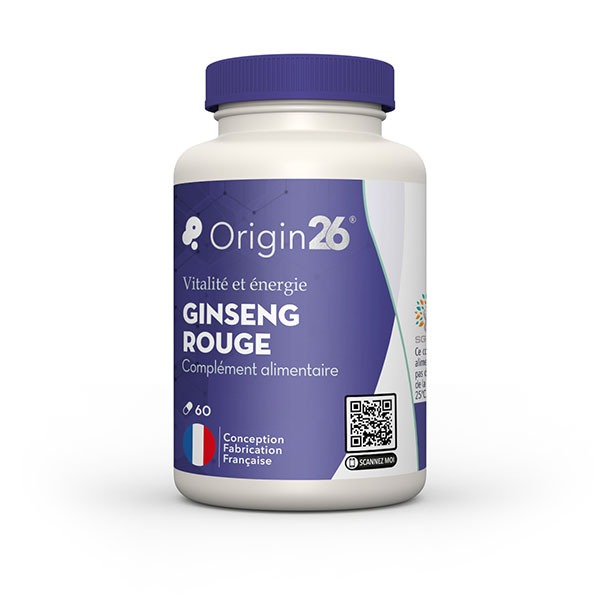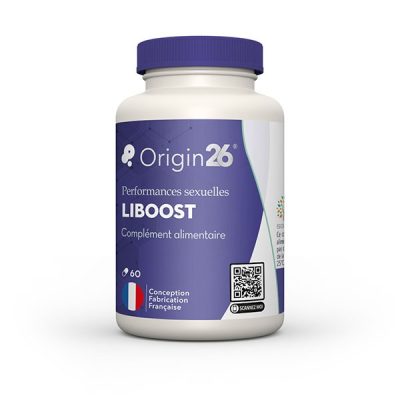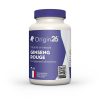Ginseng rouge
Ginseng is one of the so-called “adaptogen” medicinal plants, that is to say, which would help the body to respond to the aggressions and imbalances to which it is subjected. Its use against stress, fatigue and to prevent mild winter respiratory infections seems interesting. In addition, it could have an interest in the treatment of erection problems and in that of type 2 diabetes.
Origin and uses of ginseng
Ginseng (Panax ginseng) is grown in China, Korea and Canada. Its root, with a shape sometimes reminiscent of a human being, is harvested, possibly parboiled (steam treatment) and then dried. The roots of plants over four years old are used.
In phytotherapy, ginseng is used to fight against stress, as a general tonic in case of physical or intellectual fatigue, and to help convalescents recover their health. It also has the reputation of stimulating the immune system, treating erectile dysfunction (male impotence) and helping to control glycemia (blood sugar levels) in people who suffer from type 2 diabetes.
Other traditional uses of ginseng.
Ginseng is also proposed to relieve liver diseases, rheumatism, cough, fever, and to promote the convalescence of people suffering from tuberculosis.
How does ginseng work?
Ginseng roots contain triterpene saponins, ginsenosides, of which there are at least a dozen varieties. To try to explain the complex effects of these substances (which seem to vary according to the state of the one who takes them), a Russian scientist named Lazarev created, in 1947, a specific term: adaptogen. Adaptogenic substances fight against stress and promote a return to balance. This notion is difficult to integrate and evaluate in the context of Western medicine.
In in vitro tests (on cell cultures) and in animals, studies have shown that ginseng extracts stimulate certain immune cells (lymphocytes) and induce them to produce interferons (substances capable of neutralizing some viruses). In addition, these extracts seem able to increase the level of cortisol in the blood (the hormone that allows us to react to stress) and to inhibit the action of prolactin (a hormone that decreases sexual desire in male).
How effective is ginseng?
Clinical studies measuring the effects of ginseng on fatigue, stress and physical or intellectual performance are numerous, but they suffer as a whole from serious methodological shortcomings. To date, it is impossible to objectively confirm these types of properties in humans, but they have been abundantly demonstrated in animals. In human herbal medicine, the use of ginseng in these indications is based solely on tradition.
The stimulating effect of ginseng extracts on the immune system has been demonstrated quite convincingly in the context of winter respiratory infections (colds) and in that of the immune reaction after vaccination against influenza (the administration of ginseng improves the vaccine-induced immune response). Similarly, some good quality clinical studies suggest a regulating effect on blood sugar in people with type 2 diabetes, as well as a positive effect of ginseng in erectile dysfunction. However, in this indication, these effects remain minor compared to those of drugs now available.











Reviews
There are no reviews yet.